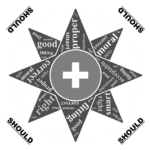English Modal Verbs: a free printable worksheet on the English modal verbs with grammar rules and exercises
English Modal Verbs
Tabel of Contents
Level:
This lesson can be used on all ages of elementary to intermediate students.
Target:
The aim of this lesson is to teach students how to use the can, could, must, be able to, may, will.
Preparation:
First print the activity sheet. Photocopy one activity sheet for each student in the class.
Introduction:
After going through your regular review and teacher talk. Tell the students that you’re going to learn and practice the use of can, could, must, be able to, may, will.
Procedure
Go through the grammar and the exercises together.
Wrap Up
Ask the students if they have any doubts.
Thank them for coming to the lesson.
The modal verbs in English grammar are can, could, may, might, must, need not, shall/will, should/ought to. They express things like ability, permission, possibility, obligation etc. Modal verbs only have one form. They do not take -s in the simple present and they do not have a past simple or past participle form.
We use modal verbs to express ability, to give advice, to ask for and give permission, to express obligation, to express possibility, to deduce and to make predicitions.
DOWNLOAD THE PDF FOR FREE






